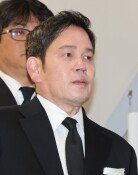A culture of revenge in the Korean politics
A culture of revenge in the Korean politics
Posted January. 04, 2020 07:53,
Updated January. 04, 2020 07:53
“Revenge is jeopardizing the politics in Korea,” said Guy Sorman, French philosopher and intellectual who has been to Korea about 100 times, during a New Year’s interview with The Dong-A Ilbo. “It is surprising to see former presidents being imprisoned. A change of government is not about revenge but it happens after every election in Korea.” We have been so busy arguing who is right or wrong that we have not had a chance to look back on ourselves. But his remarks make us realize how we are viewed from outside the country. Not only Sorman but other foreign scholars would have said the same about Korea.
The incumbent administration put two former presidents in prison even before a final ruling is made by eradicating deep-rooted evils, which can be seen as revenge through the eyes of a foreigner. Looking at the allegations surrounding the Moon Jae-in administration’s interference in an inspection of Yoo Jae-soo, former vice mayor of Busan, and possible intervention in Ulsan mayoral election, however, there is a high possibility of high-ranking officials being imprisoned again when the country goes through a change of power. That fear of revenge motivates those in power to cling on to power. As a result, we are seeing a coalition between the ruling Democratic Party and minor opposition parties to push ahead with a revision to election rules and inconsistent attempts to reform the prosecution.
The history of Joseon teaches us about the consequences of a series of massacres of scholars but we are following in their footsteps. “Democracy is not about exercising power. It is about showing respect for the other side but I don’t see it in Korean politics,” added Sorman. We have won democracy so hard through democratic movements but still do not have the foundation for democracy, which is respect for the other side. There is no future for Korean politics unless the nation overcome the old culture of revenge.
As an outsider, Sorman provided a different take on the chaebol system, which is vilified by the liberals in Korea. “Chaebols have played a key role in making Korea what it is today. Korea needs to understand their historical function,” said Sorman. “Chaebol is not a problem in itself. The problem is some chaebols having a monopoly in certain fields. Therefore, Korea should tackle the problem from a different approach, for example, by classifying chaebols into different categories like the U.S.” Like Sorman said, we should acknowledge the efficiency chaebols have when competing in the global market and at the same time figure out ways to reform chaebol in accordance with the changing economic environment and the law.
Headline News
- Joint investigation headquarters asks Yoon to appear at the investigation office
- KDIC colonel: Cable ties and hoods to control NEC staff were prepared
- Results of real estate development diverged by accessibility to Gangnam
- New budget proposal reflecting Trump’s demand rejected
- Son Heung-min scores winning corner kick







